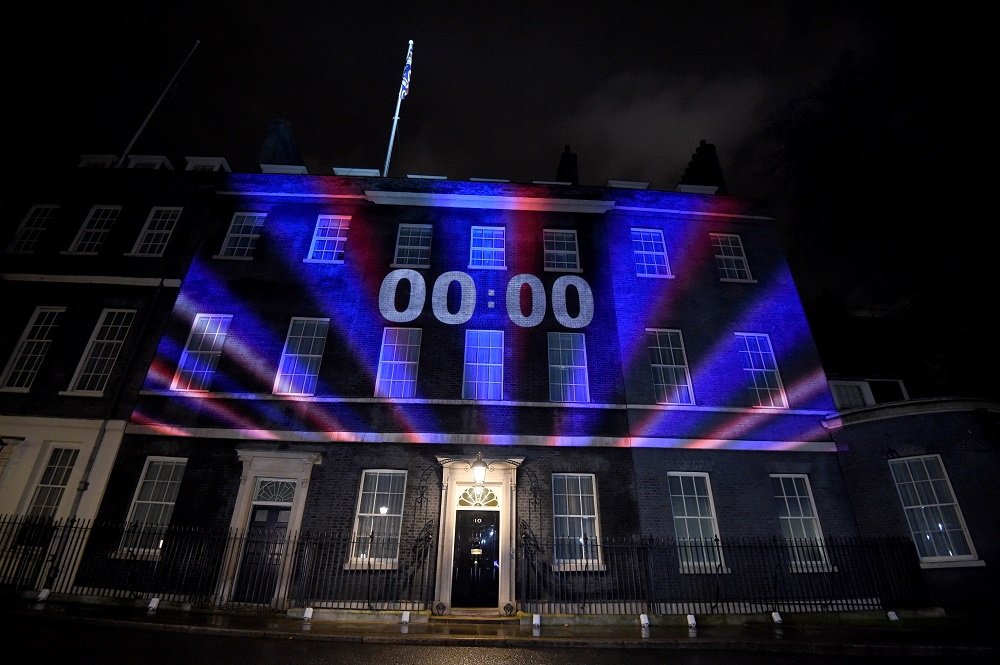
Well folks, it’s finally happened – after years of protracted negotiations and political turmoil, Brexit fired off at the stroke of midnight in Brussels, meaning the UK is officially out of the European Union.
A clock was projected onto the Prime Minister’s residence at 10 Downing Street, counting down to the moment, which actually took place at 11pm London time.
Brexit scuttled the careers of two UK Prime Ministers, leaving Boris Johnson in the top job, and in his address to the nation, he promised the “dawn of a new era”, saying:
“For many people this is an astonishing moment of hope, a moment they thought would never come. And there are many of course who feel a sense of anxiety and loss … I understand all those feelings, and our job as the government – my job – is to bring this country together now and take us forward.”
So what happens now?
In the short term, not a lot will change. The second phase of Brexit will be a period of transition, during which the UK will continue to stick by many European Union rules. This means:
- The UK stays in the EU’s customs and single market;
- The same rules will apply for trade and free movement of goods and services; and
- Freedom of movement for people will stay the same.
In a recent statement, the European Commission said “it will be business as usual for citizens, consumers, businesses, investors, students and researchers in both the EU and the United Kingdom.”
In the wake of Brexit, Britons will be allowed the same free travel around Europe as they enjoyed before, they will no longer be EU citizens.
The next big date to keep in mind is 31 December 2020, as this is the day when immigration rules will change for UK and EU citizens, and this is where the crunch could come.
The UK and the EU have the next eleven months to hammer out a deal, and although Boris Johnson is confident he can get it done, others are less so.
If, by this date, the parties have managed to make a deal around things like trade and employment, the UK will start a new relationship with the EU as of January 1, 2021.
If this has not happened, the UK potentially could find itself in a “no deal Brexit” situation, facing disruption to trade, including medicines, and higher food prices.
Boris Johnson will also need to come to an agreement with the EU around travel and immigration.
Whatever happens, the 3.3 million EU citizens in the UK will have to apply for the right to remain, or face deportation – they will have until the end of 2020, or until June 2021 if a no-deal Brexit occurs.
An estimated 1.3 million UK citizens live in the EU, and they will likely need to apply for residence in their countries.
In many respects, the European Union will be losing out in all this. The UK pays an average contribution of £7.8bn ($AU 15.39bn) into the EU, and that money will leave a sizeable hole.
The next 11 months are key. In a speech delivered several days ago at Queen’s University Belfast, the EU’s chief Brexit negotiator Michel Barnier said that “a new clock is ticking” from today.
“Whatever agreement we reach on our future relationship, Brexit will always be a matter of damage limitation,” he said.
To sum up? As a wise woman once said, just because it’s over doesn’t mean it’s really over, and the UK may have left the EU, but the difficult part of Brexit really starts now.



